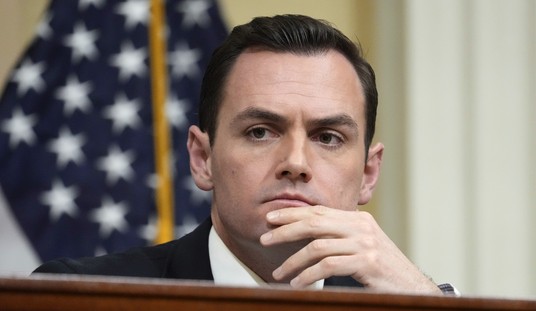Overreach in haste, “splinter” at leisure? It’s been mighty quiet lately on the so-called For The People Act, the massive bill that would federalize election jurisdiction and end voter-ID requirements. Until now, Joe Manchin and the filibuster appeared to be the Democrats’ only obstacles, but the New York Times reports that other Senate Democrats might also be peeling away:
Democrats in Congress are quietly splintering over how to handle the expansive voting rights bill that they have made a centerpiece of their ambitious legislative agenda, potentially jeopardizing their chances of countering a Republican drive to restrict ballot access in states across the country.
President Biden and leading Democrats have pledged to make the elections overhaul a top priority, even contemplating a bid to upend bedrock Senate rules if necessary to push it through over Republican objections. But they are contending with an undercurrent of reservations in their ranks over how aggressively to try to revamp the nation’s elections and whether, in their zeal to beat back new Republican ballot restrictions moving through the states, their proposed solution might backfire, sowing voting confusion and new political challenges. …
But while few Democrats are willing to publicly say so, the details of the more than 800-page bill — which would radically reshape the way elections are run and make far-reaching changes to campaign finance laws and redistricting — have become a point of simmering contention. Some proponents argue that Democrats should break off a narrower bill dealing strictly with protecting voting rights to prevent the legislation, known as the For the People Act, from collapsing amid divisions over other issues.
Manchin has taken most of the heat, although some has also been directed toward Kyrsten Sinema over her opposition to changing the filibuster. Without eliminating the filibuster, the bill would have no chance of passage while Republicans control half of the Senate. However, it now looks like the filibuster is a secondary problem, as Democrats can’t even get to 49, let alone 50 votes in the Senate:
Behind the scenes, two election lawyers close to the White House and congressional Democrats said Mr. Manchin was not the only one on their side with reservations about the measure. They insisted on anonymity to discuss the concerns because few Democrats want to concede that there are cracks in the coalition backing the measure or incur the wrath of the legion of liberal advocacy groups that have made its enactment their top priority.
Why not air the issues more openly? Democrats have control of the White House and both floors in Congress, even if they have to share power with the GOP in the Senate otherwise. Perhaps one reason is that Democrats on Capitol Hill watched Al Sharpton attack Manchin and Sinema as racists for not budging on filibuster elimination in this session, in order to force passage of this bill. As it turns out, however, black legislators are also beginning to balk, as the bill might undermine their own power bases:
Black House members, for instance, are deeply uneasy over the bill’s shift to independent redistricting commissions, which they fear could cost them seats if majority-minority districts are broken up, particularly in the South. Before the bill passed the House, its authors spent significant time reassuring members of the Congressional Black Caucus that there were adequate protections in place to preserve their districts. But a prominent committee chairman, Representative Bennie Thompson of Mississippi, remained so concerned that he voted against the bill, despite having sponsored it.
That’s what happens when parties roll up a lengthy hobby-horse agenda into a single bill and tries to jam it through Congress. One would think that Democrats would have learned that lesson with ObamaCare, which barely got through even with large Democratic majorities in both chambers of Congress at the time. (They had to resort to reconciliation in the end despite having 59 seats in the Senate.) Republicans might have learned that lesson with their inept efforts to repeal ObamaCare using reconciliation, but to be fair to Democrats, they never really did get tested on that point.
Another reason some more moderate Democrats (or “establishment,” as the NYT calls them) could be hesitating is the myriad ways in which some of these provisions could backfire in 2022. Republicans are launching a major ad blitz against the bill and its perverse outcomes, Fox News reported earlier today:
The Republican National Committee (RNC) is taking aim at the congressional Democrats’ wide-ranging election and campaign finance reform bill, describing it as a “hyper-partisan power grab.”
Fox News has learned that the RNC next week will launch an ad blitz backed by six-figures that aims to pressure Senate Democrats to reject the bill, which earlier this month passed the Democratic-controlled House along party lines. …
“Democrats are attempting an egregious power grab through H.R. 1 that will fundamentally alter our entire election system and dismantle the integrity of the vote, but we will not let them get away with it,” RNC chair Ronna McDaniel told Fox News in a statement.
McDaniel emphasized that “the RNC is using every tool available” to counter what she charged is the “Democrats’ blatant hijacking of our election system that would give unfettered power to unelected D.C. bureaucrats and trample on free speech. This is the latest initiative in our continued commitment to maintaining confidence in our elections and protecting the vote.”
Just how “major” is a six-figure ad buy? Democrats might be worried that the GOP will invest more money into it if it starts resonating with voters. Democrats will have a tough midterm election anyway, especially with Biden fumbling border-security policy as badly as he has at the moment, so they don’t need more headwinds of their own creation. That’s almost certainly why murmurs of paring the bill down to a few essentials that Manchin could support are being heard now, along with discussion about how much they can do while still gaining enough Republican votes to get past the filibuster.








Join the conversation as a VIP Member